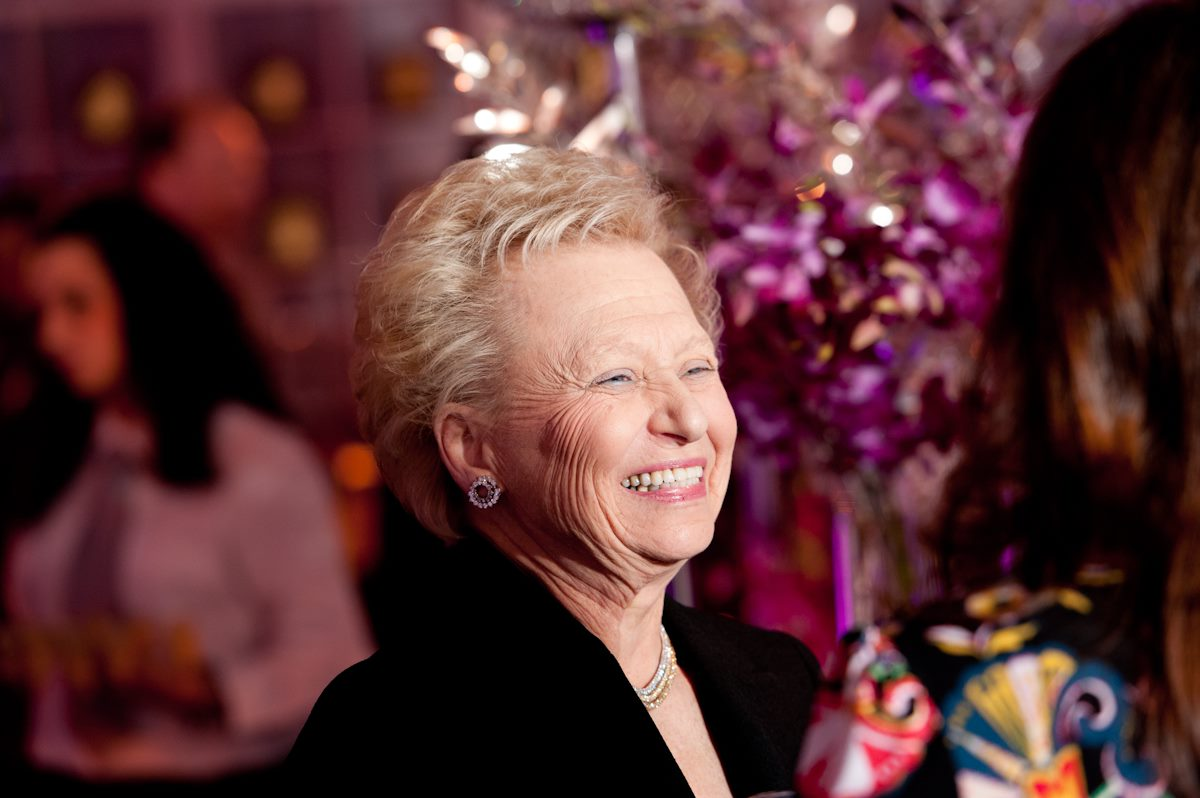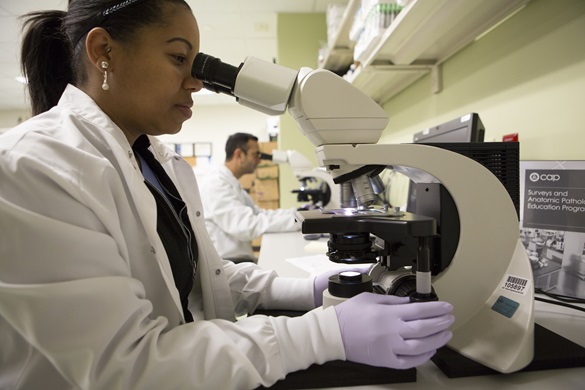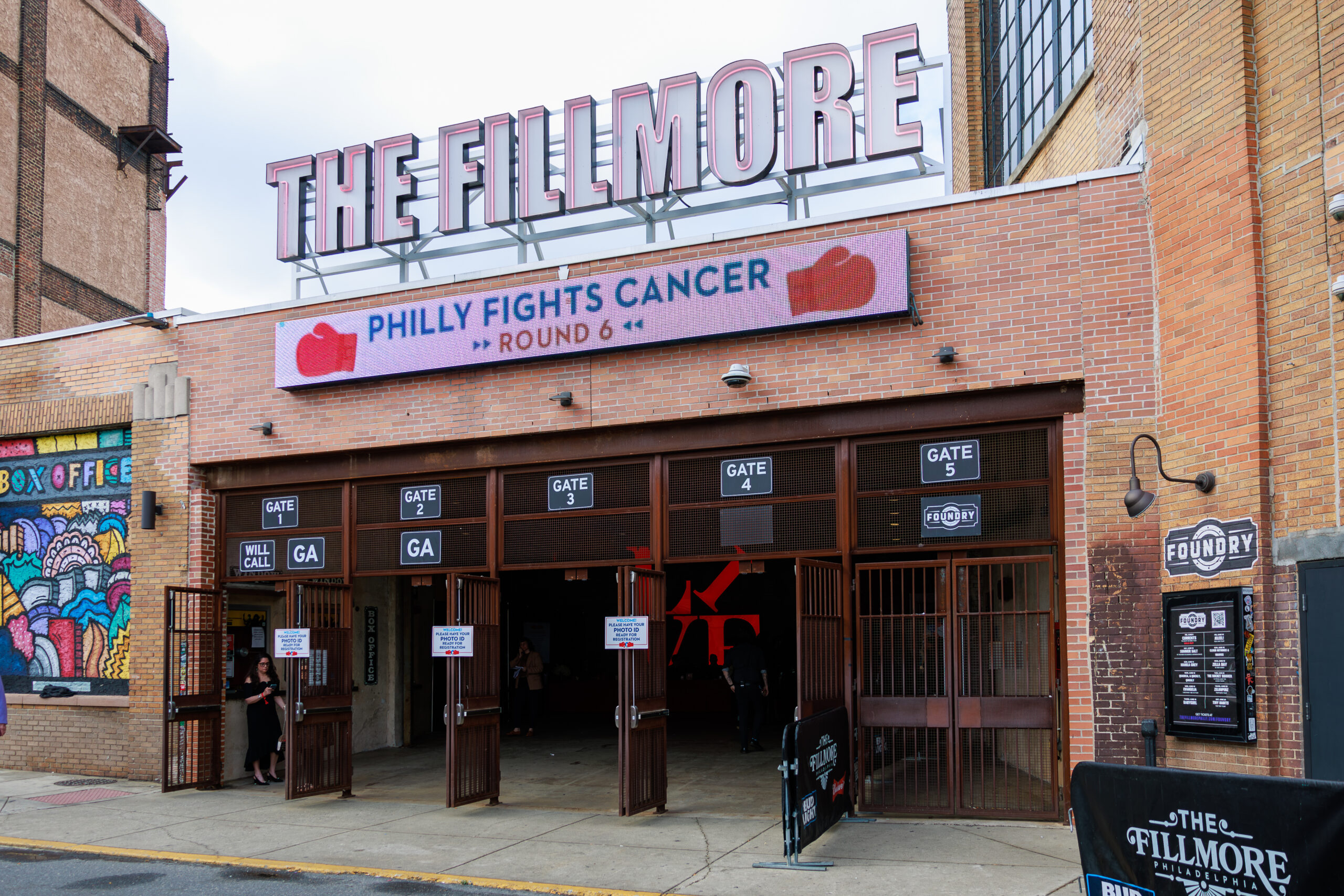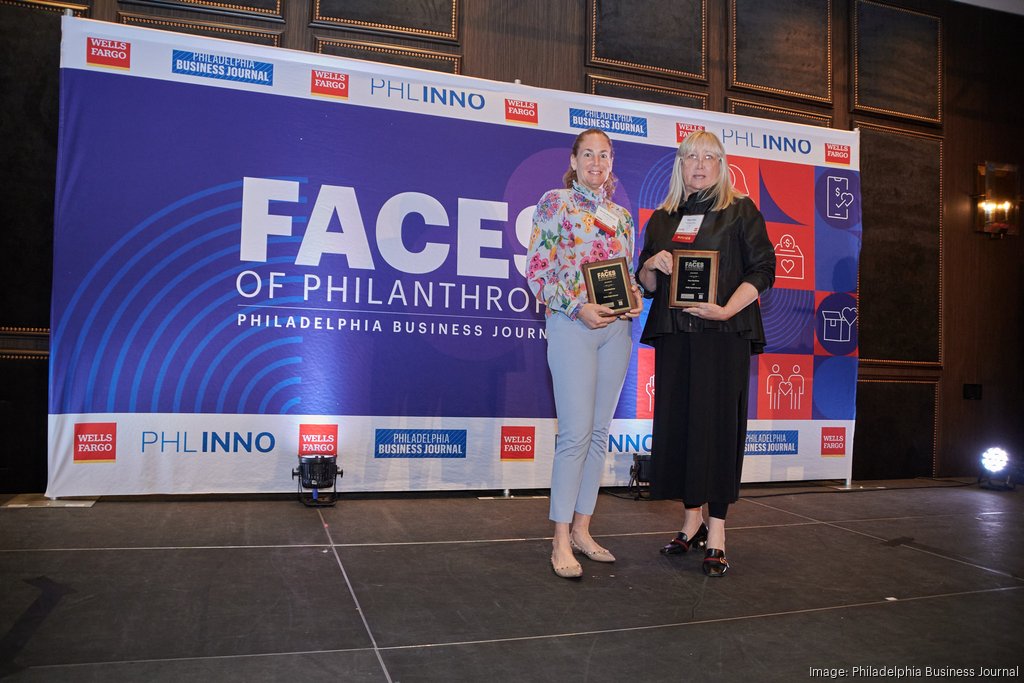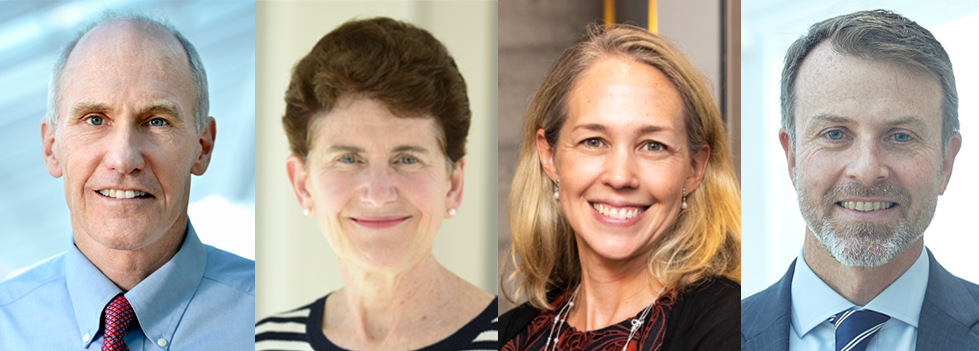Philly Fights Cancer: Round 6, An Evening with Philadelphia Legends will feature 3-time Grammy-winning band The Roots, Rock and Roll Hall of Fame Inductee Daryl Hall, Grammy-nominated singer-songwriter Kathy Sledge, and #1 Billboard chart-topper Amos Lee. The evening will also feature a special after-party performance by DJ Questlove. Together we will honor the legacy of Philadelphia-born philanthropist, visionary, and Philly Fights Cancer founder, Madlyn Abramson with a lineup of renowned musical talent from the City of Brotherly Love.
About The Roots
The legendary Roots Crew have become one of the best known and most respected hip-hop acts in the business, winning four GRAMMYS, including "Best R&B Album" for Wake Up!, "Best Traditional R&B Vocal Performance" for "Hang in There" (with John Legend) and "Best Group or Duo R&B Vocal Performance" for "Shine." This brings the band's GRAMMY nomination count to twelve. Additionally, "The Roots Picnic," a yearly star-studded mix of musicians, has become a celebrated institution. The Roots were named one of the greatest live bands around by Rolling Stone and serve as the official house band on The Tonight Show Starring Jimmy Fallon.
About Daryl Hall
Daryl Hall is a modern-day renaissance man, an inductee into the Rock and Roll Hall of Fame with the best-selling duo of all time, the star of his very own award-winning web series-turned-TV staple, Live from Daryl’s House, as well as a successful venue owner with “Daryl’s House,” a restored venue and live music space in Pawling, N.Y.
Since forming his partnership with John Oates in 1972, the Philadelphia soul man is still achieving career milestones more than four decades later, continuing to perform with his band to sold out venues everywhere.
It’s been quite a few years for Hall, including the opening of “Daryl’s House,” a combination world-class restaurant and performance venue, which he kicked off with a live-streamed Daryl Hall & John Oates concert on October 31, 2014 . The popular venue also serves as home base for his multi award-winning Live from Daryl’s House. The show, which began as a “light bulb” moment for Hall when he launched it in 2007 as a free webcast, has set the standard for artist-initiated projects. The groundbreaking series provides a mix of legends and the next generation of superstars.
Previous episodes of Live From Daryl’s House have featured a diverse mix of veteran and new performers from rock, soul, country and R&B including rock legends Sammy Hagar, Joe Walsh, Cheap Trick, Kenny Loggins, Todd Rundgren, Nick Lowe, Dave Stewart and Billy Gibbons of ZZ Top; soul and R&B artists The O’Jays, Aaron Neville, Aloe Blacc, Kandace Springs, Elle King, Wyclef Jean, Smokey Robinson, Cee Lo Green, Booker T & The MGs, and Sharon Jones; big-league singer/songwriters such as Ben Folds, Rob Thomas, Jason Mraz, Gavin DeGraw, Goo Goo Dolls’John Rzeznik and Fall Out Boy’s Patrick Stump; country artists such as Shelby Lynne; and has helped break new acts like Fitz & The Tantrums, Grace Potter & The Nocturnals, Neon Trees, Johnnyswim, Parachute and Anderson East.
Daryl Hall has come a long way, and he’s still got plenty of mileage left in a career that’s taken him from the streets of Philadelphia to the halls of the Rock and Roll Hall of Fame in Cleveland. The best is yet to come.
About Kathy Sledge
Kathy Sledge is a Renaissance woman — a singer, songwriter, author, producer, manager, and Grammy-nominated music icon whose boundless creativity and passion has garnered praise from critics and a legion of fans from all over the world. Her artistic triumphs encompass chart-topping hits, platinum albums, and successful forays into several genres of popular music. Through her multi-faceted music career and her legacy as the signature voice in Sister Sledge who originated worldwide anthems like "We Are Family," which was added to the Library of Congress' National Recording Registry in 2017, and "He's the Greatest Dancer," Kathy's inspired millions of listeners across every generation.
Iconic producer Nile Rodgers says it best: "Kathy has one of the most original and unique voices in pop music. Always has and always will!” While Kathy Sledge has tapped into the power of her voice, she consistently sets new standards of excellence. As a dynamic live performer, she's also developing her passion for producing shows for the stage and screen. Presently, she’s producing several live concerts and headlining festivals worldwide. She conceived both The Brighter Side of Day- A Billie Holiday Tribute and "Kathy Sledge presents: My Sisters & Me," a Classic Concert series that features "Sisters In Song”, Deniece Williams, Karyn White, and CeCe Peniston. With an impressive stylistic versatility, Kathy remains a vibrant presence in nearly every genre of popular music.
As one of the most sought-after voices in dance and pop music Kathy collaborated with renowned London-based production team Horse Meat Disco on recent chart-topping club hits "Jump Into the Light" (2020) and "Falling Deep in Love" (2019). Kathy received the "Outstanding Contribution Award" at the highly acclaimed Ibiza DJ Awards. "Music is my passion," she declares. "It's what I love to do, throughout my music career, and now more than ever.
About Amos Lee
With one foot in the real world and the other in a charmed dimension of his own making, Amos Lee creates the rare kind of music that’s emotionally raw yet touched with a certain magical quality. On his eighth album Dreamland, the Philadelphia-born singer/songwriter intimately documents his real-world struggles (alienation, anxiety, loneliness, despair), an outpouring born from deliberate and often painful self-examination. “For most of my life I’ve walked into rooms thinking, ‘I don’t belong here,’” says Lee. “I’ve come to the realization that I’m too comfortable as an isolated person, and I want to reach out more. This record came from questioning my connections to other people, to myself, to my past and to the future.”
In the spirit of fostering connection, Lee made Dreamland in close collaboration with L.A.-based producer Christian “Leggy” Langdon (Banks, Meg Myers). “I met with Leggy, who I really didn’t know anything about, and before we even started to work we had a very open and vulnerable conversation about what was going on in our lives,” he recalls. “So much of what I do is solitary work, and it felt good to find someone I could connect with—sort of like, ‘I’m a lonely kid, and I wanna play.’” Thanks to that palpable sense of playfulness, Dreamland embodies an unpredictable and endlessly imaginative sound—a prime showcase for Lee’s warmly commanding voice and soul-baring songwriting.
The very first song that Lee and Langdon created together, “Hold You” set the standard for Dreamland’s open-hearted confession. With its delicate convergence of so many exquisite sonic details—luminous guitar tones, ethereal textures, tender toy-piano melodies—the track finds Lee looking inward and uncovering a deep urge to provide comfort and solace. “Especially if you’ve grown up with a less-than-appealing inner voice, you have to start with yourself,” he notes.
On “Worry No More”—the mantra-like lead single to Dreamland—Lee shares his hard-won insight into riding out anxiety. “I’ve had a lot of episodes with anxiety in my life and now I feel much more equipped to handle them, partly because my family and friends have always been so supportive of me,” he says. “Music has also been so healing for me, and helped me to find a place in my mind that isn’t purely controlled by fear.” To that end, “Worry No More” gently exalts music’s power to brighten our perspective, with the song’s narrator slipping into a headphone-induced reverie as they wander a broken world (“I’m listening to the sounds of Miles/Spanish sketches, playground smiles/Crowded streets and empty vials/For all to share”).
All throughout Dreamland, Lee embraces an unfettered honesty, repeatedly shedding light on the darkest corners of his psyche. On “Into the Clearing,” for instance, the album takes on a moody intensity as Lee speaks to a desire for obliteration. “There’s always a longing to be one with the universe, to be one with nature, to be one with the sky,” he says. “And sometimes the only way you can be with the sky is to be smoke.” A powerfully uplifting track with a gospel-like energy, “See the Light” evokes a fierce resolve to hold tight to hope (“Since I know I’m going to be singing these songs over and over, I like to infuse them with helpful messages to myself,” Lee says). With its soulful piano work and soaring string arrangement, “Seeing Ghosts” reflects on anxiety’s insidious ability to warp our perception. “For a lot of people with anxiety disorders, there’s this fog that sets in, where your brain becomes overwhelmed and you disconnect,” says Lee. “I’ve definitely seen ghosts my whole life.” In a striking tonal shift, Lee then delivers one of Dreamland’s most euphoric moments on “Shoulda Known Better,” a radiant piece of R&B-pop fueled by his dreamy falsetto. “That song’s looking at the messy side of life,” he says. “It’s saying, ‘I was dumb, I shouldn’t have done that, but we had a lot of fun. I don’t regret it at all.’”
In the making of Dreamland, Lee found his songwriting indelibly informed by his recent reading of Johann Hari’s 2018 book Lost Connections. “It’s about depression, which I have a pretty deep history with, and how our society and our generation looks at mental health and healing in terms of medication rather than thinking about our personal relationship to the people and the world around us,” he says. And with the release of Dreamland, Lee hopes that his songs might inspire others to live more fully and free of fear. “Over the course of my life I’ve come to understand that music is my bridge to other people,” he says. “I have no idea what the waters are like below that bridge—it might be lava for all I know—but music allows me to float over the whole thing and connect. To me that’s the whole point of why we do this: to give people something to listen to and be enveloped by the love of another human being, and just be reminded that humanity is beautiful.”
Limited sponsorships remain for Philly Fights Cancer: Round 6. Contact sponsorships@phillyfightscancer.com for more information. We can’t wait to see you!





